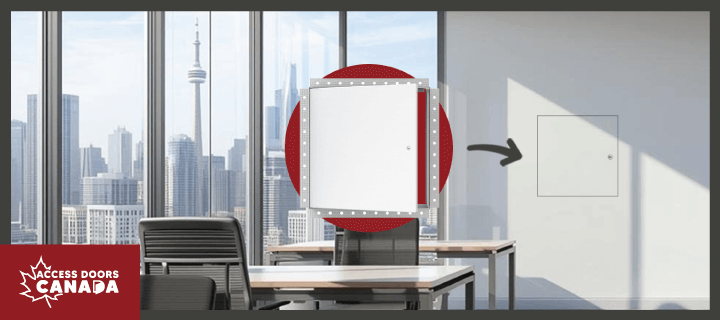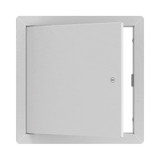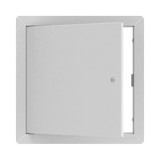What Is Rebar and What Are the Most Common Rebar Sizes?
Concrete is one of modern-day construction's most important and commonly used materials. It is valued for its strength and durability in compression, making it a long-lasting yet affordable building solution. However, concrete has a significant weakness: poor performance in tension.
This is where rebar— short for reinforcing bars—comes in. A rebar is a steel bar strategically embedded within concrete to improve its tensile strength and overall structural integrity.
The Power of Reinforcement
Concrete is excellent at resisting compressive or pushing forces. However, when subjected to pulling forces, it cracks easily. A rebar, made of high-tensile steel, takes on these pulling forces, preventing cracks and ensuring the concrete element maintains its structural integrity. This teamwork between concrete and rebar allows us to build strong and reliable buildings, bridges, and other structures.
Understanding Rebar Sizes
Rebar come in various sizes, designated by a number sign (#) followed by a number. For example, #3 rebar and #8 rebar. This numbering system directly correlates to the diameter of the rebar in eighths of an inch. So, the #3 rebar is 3/8" in diameter, while the #8 rebar is 1" in diameter.
Common Rebar Sizes and Their Applications
Selecting the appropriate rebar size depends on the specific application and the structural loads involved. Here's a breakdown of some commonly used rebar sizes and their typical applications:
Rebar Size #3
Diameter: 3/8"
This is a smaller rebar commonly used in residential projects for driveways, patios, sidewalks, and thin slabs. Due to its smaller diameter, #3 rebar is a cost-effective option for low-load applications.
Rebar #4
Diameter: 1/2"
A #4 rebar applies in structures with moderate load-bearing requirements, such as thicker slabs, foundations, walls, and columns. Its larger diameter compared to #3 rebar provides increased strength for these moderately loaded elements.
Rebar #5
Diameter: 5/8"
A #5 rebar is specified for heavy-duty applications where high strength is crucial. Examples include foundations, retaining walls, and bridge decks. The increased diameter of a #5 rebar translates to a significant boost in tensile strength for these high-load scenarios.
Larger rebar sizes (#6 and above) are used in massive structures like beams and columns for high-rise buildings, larger commercial structures, and bridges. These applications require significantly higher tensile strength to withstand the substantial loads involved.
Integrating Access Panels in Concrete Walls with Rebar
Concrete's inherent strength also presents a challenge—modifying concrete walls after they've been poured can be difficult, especially when rebar is present. However, incorporating access panels, like ADC-BAC-GRG-RC Pop-Out Radius Corner - Gypsum Access Panel – Best, in concrete walls with rebar is still possible with careful planning:
- Planning During Design Phase: A close collaboration between engineers and designers during the initial planning stages is crucial. Strategically locating access panels in areas with minimal construction reinforcement can minimize disruption to the reinforcement scheme.
- Rebar Relocation: In some cases, despite concrete reinforcement, carefully relocating rebar around the access panel perimeter might be feasible. This process requires a qualified engineer to analyze the impact and ensure the structural integrity remains intact.
- Sleeves or Inserts: Another strategy involves strategically placing sleeves or inserts during the concrete pouring. These create openings for future access panel installation without compromising the rebar placement.
Integrating access panels into concrete construction is possible with strategic planning and proper execution. Access Doors Canada is one of the country's leading providers of access solutions for different construction projects, including concrete structures. We offer the best access solutions for your construction needs. From ceiling access panels to floor hatches, Access Doors Canada ensures customer satisfaction with high-quality products from brands like Best Access Doors, Acudor, JL Industries, Invisagrille, and more.
Check out what our customers say about our products.
Choosing the Right Rebar Size
Selecting the appropriate rebar size is critical for ensuring the structural integrity of your project. Here's why consulting a structural engineer is crucial:
- Structural Loads: Different structures experience varying degrees of load. Engineers analyze these loads and determine the necessary rebar size to handle them effectively.
- Concrete Element Size and Thickness: The size and thickness of concrete elements (slabs, walls, beams) influence the rebar size selection. Thicker elements typically require larger diameter rebar.
- Building Codes and Engineering Specifications: Building codes and project-specific engineering specifications often dictate minimum rebar size requirements for different structural elements.
While some rebar suppliers might offer size selection guidance, relying on a qualified structural engineer is crucial for the final decision. Their expertise ensures your project meets all safety and performance requirements.
Wrapping It Up
Rebar plays a vital role in construction by strengthening concrete and enabling us to build reliable and stable structures. Understanding the different rebar sizes and their applications is essential for construction professionals. Remember, selecting the right rebar size requires consulting a structural engineer who can factor in structural loads, concrete element specifications, and relevant building codes.
By working with engineers and employing creative solutions like access panel sleeves, construction professionals can ensure the structural integrity of concrete walls with rebar and the functionality of access panels for future maintenance or repairs.
Access Doors Canada offers vital access solutions for commercial contractors, ensuring efficiency and safety in construction projects. Our commitment to innovation and durability enables contractors to confidently address modern building challenges, including those presented by reinforced concrete.
Browse our extensive product catalogue to find the access solution that best suits your needs. Visit our website for more information.
For projects that require specialized access panels, call us at (800) 679-3405 or contact our team of experts to ask about a specific product or request a quote. We're here to assist you!









